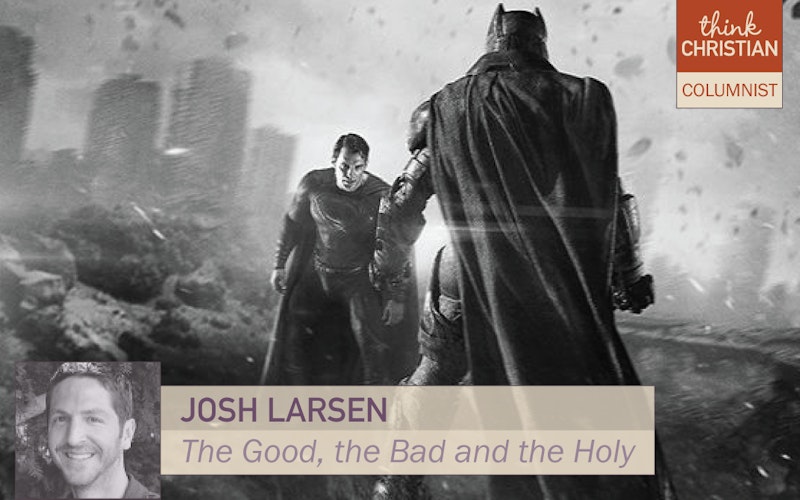
Movies
Batman v Superman and the limits of super powers
There is a lot of “god talk” in Batman v Superman: Dawn of Justice, the long-awaited cinematic showdown between two of our most iconic superheroes. And while most of it is in reference to Superman (Henry Cavill) — the omniscient, all-powerful man in the sky — the movie in fact includes three figures with god-like powers: Superman, Batman (Ben Affleck) and megalomaniac industrialist Lex Luthor (Jesse Eisenberg).
You would think that this triad could make for an interesting consideration of the nature of power — how it’s pursued, protected and exercised by different characters in different ways. Yet this is sadly not the case. Batman v Superman is so juvenile in its conception and inept in its execution that the movie can’t even conjure a convincing reason why its title characters are fighting each other. Instead, the film is obsessed with the demonstration of power in its most basic, physical forms. In Batman v Superman’s limited, schoolyard-bully mind, power is equated with pummeling.
Director Zack Snyder, returning from Man of Steel, makes brute strength and wanton destruction the movie’s dominant aethestic. Affleck’s Batman is a lumbering bruiser, given to hanging out at underground fight clubs and groaning through silly weight-lifting montages. His new costume — an armored suit with glowing eyes — gives him the stature and mobility of his minifigure alter ego from The Lego Movie. Luthor, meanwhile, could have brought an interesting dynamic to the proceedings considering he’s more of an intellectual than physical threat. But it’s hard to crack someone’s back over your knee just by thinking about it, so Luthor is conveniently sidelined during the final third of the film in favor of another drearily familiar CGI space monster. As for Superman, if the movie had paid half as much attention to his inner life as it does to his rippling muscles, we might have gotten some sense of why he’s in such a snit over the Caped Crusader.
In Batman v Superman’s schoolyard-bully mind, power is equated with pummeling.
There is a lot more to the notion of power than Batman v Superman is capable of considering. The very crux of Christianity is that the all-powerful God, creator and sustainer of the cosmos, made Himself vulnerable on our behalf. In Playing God: Redeeming the Gift of Power, Andy Crouch describes it this way: “Precisely because they were witnesses to [Jesus’] resurrection after a violent death, the New Testament writers could no longer acquiesce to the idolatrous fiction that violence is the truest form of power. Instead, they had seen with their own eyes, and touched with their hands, the evidence that a much greater power was at work in the world than Rome could ever muster.” And it was not a power of might, but of sacrificial love. It was power through weakness — something Batman v Superman would shudder to consider.
To be fair, the movie’s climactic battle sequence flirts, ever so briefly, with the popular concept of Superman as self-giving Christ figure. But the gesture is undercut by a prevailing preference for bashing heads. And indeed, the film ends with a blatant tease for its two-part, Avengers-style sequel: The Justice League. Given the predominant chest-puffing of Batman v Superman — as well as the return of Snyder and Chris Terrio, one of its screenwriters – it’s safe to say that The Justice League will be a further amassing of similarly misguided power, rather than any sort of meaningful recognition of the complexity that true power entails.
Topics: Movies, Culture At Large, Arts & Leisure